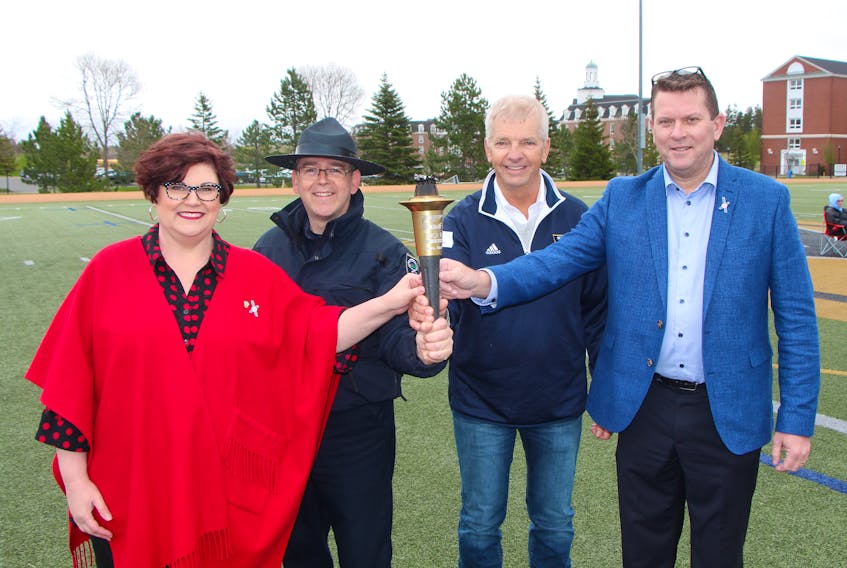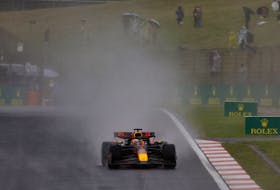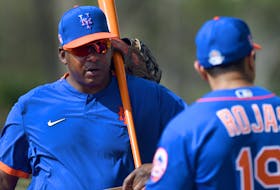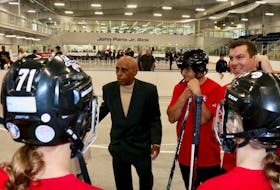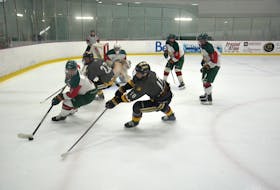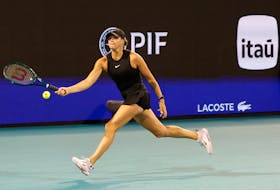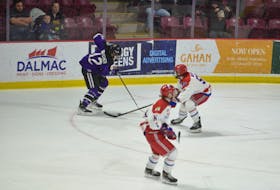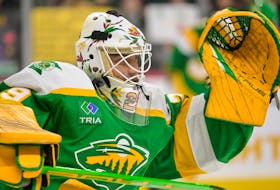Canadian communities Antigonish and Vancouver; one on the Atlantic coast, the other the Pacific.
One is Canada’s third largest city, the other sees its population, basically, double with the start-up of university in the fall.
Maybe there are not a lot of similarities at first glance but, after Aug. 4, they are going to share a proud distinction which would seem like a natural for a large city like Vancouver, but not so much for Antigonish.
When the Special Olympics Canada 2018 Summer Games come to Antigonish July 31 to Aug. 4, it will mark the first time the event will take place in a small town; large and medium-sized cities have played host to all the other national games. Nova Scotia’s only other time hosting was Halifax in 1994.
Vancouver hosted the previous Games in 2014.
“Take advantage of it,” Cathy Priestner-Allinger, chair of the Vancouver organizing committee in 2014, said.
“It’s not often you get a big event like this coming to your community. These athletes are inspirational; they all have a story. Some great stories, some sad, but they’ve all overcome adversity to arrive at a place that is a real celebration of their lives and achievements. And, unless you’re there and witnessing it, you don’t necessarily get it.
“It’s one of those experiences where having the opportunity to be there in person and seeing the athletes’ experience first-hand, is just something you’ll never get again in your community. I know, as part of the organizing community and for all those who volunteered and worked the Games it was same thing, it was witnessing, time-after-time, stories; the defeats and triumphs and how these athletes deal with it all … it’s quite unique.”
As for her work as chair in 2014, Priestner-Allinger said she had the advantage of being part of VANOC (Vancouver Organizing Committee) for the 2010 Olympic and Paralympic Winter Games.
“So I was able to recruit a bunch of my colleagues to work on the Games; they were all very willing,” she said. “So they went from being professionals running a big event to volunteering. We were able to pull quite a quality team together because of that experience … that was a nice way to start.”
In talking about legacies from the Games, Priestner-Allinger said they were able to leave a financial one.
“We raised enough money to have a profit at the end which was really important because that all went back to the community in B.C. and Special Olympics Canada benefits from the profit as well. It was really nice to see that,” she said.
“We did not have to build a lot of new, if any, facilities because we ended up at UBC (University of British Columbia) and we also took advantage of a pro baseball facility we have in town. We had equipment which stayed in the community, Special Olympics B.C. benefitted from that.
“But we didn’t have to build infrastructure, which was a blessing really. UBC had just completed a rather large expansion of their facilities at that point; some of them just coming online as our Games approached. We were able advantage of that.”
And while they didn’t have to build anything new, they doesn’t mean there wasn’t something original established with the Vancouver Games.
“There are a lot of issues around these athletes with health and wellness and having the right testing; we were the first Games to run all of the testing,” Priestner-Allinger said.
“There are seven different tests we can put the athletes through and we had them all in advance. We told all the provinces we’re going to do this and we want you to, ideally, book time; we have all the professionals you could want, in place, to do this.”
She said it’s a huge asset for the athletes.
“They’ll come in, do an eye test and walk out with new glasses, sun glasses or protective glasses, if they don’t have proper ones” she said, using eye-testing as an example.
“That was quite a big deal; it was something that went over really well. The good news story is, these athletes walked away healthier for their day-to-day living.”

